Lateral Thinking with Withered Technology
Shinji Murakami
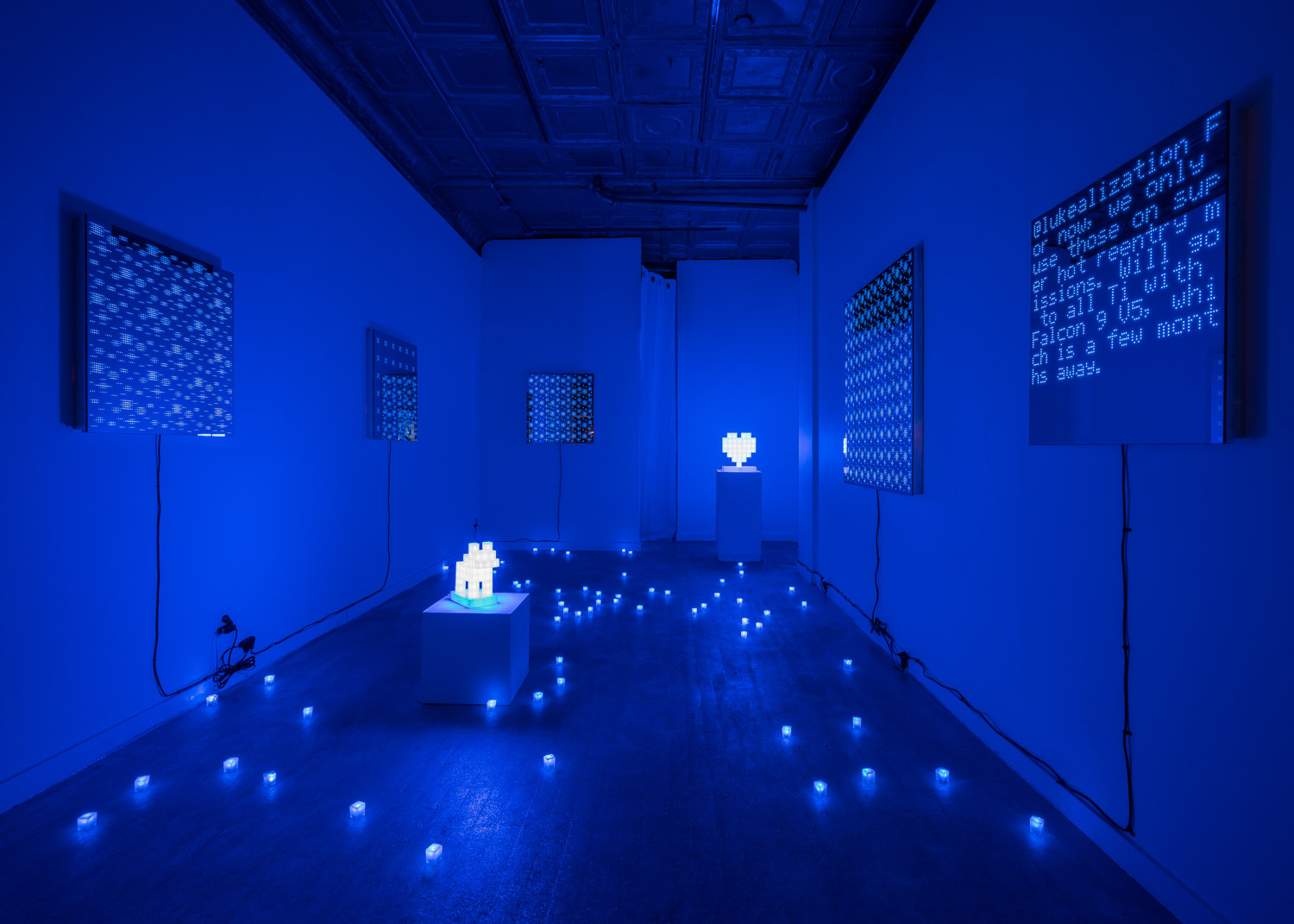
Shinji Murkami
Lateral Thinking with Withered Technology, 2017
Installation
Catinca Tabacaru, NY
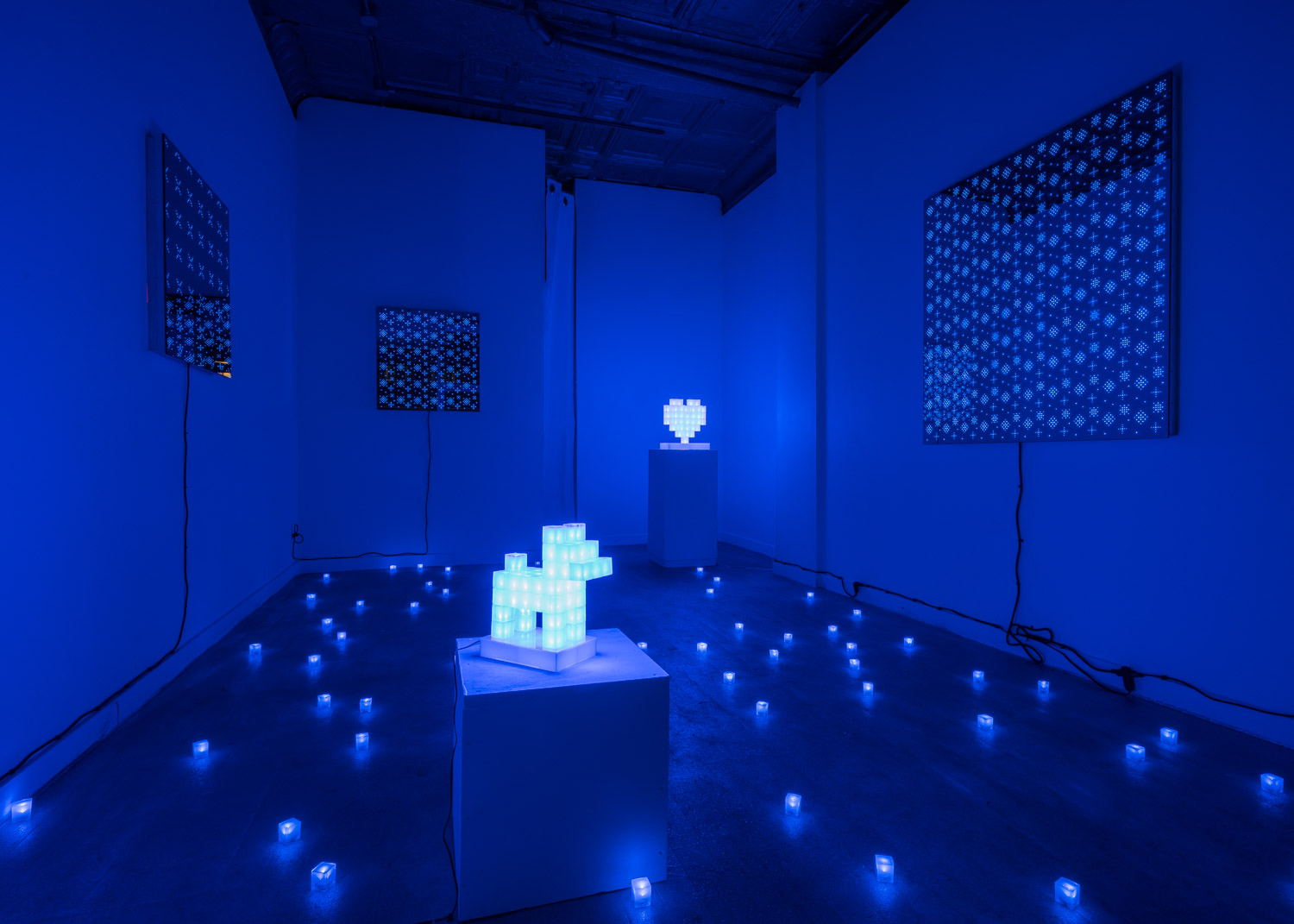
Shinji Murkami
Lateral Thinking with Withered Technology, 2017
Installation
Catinca Tabacaru, NY
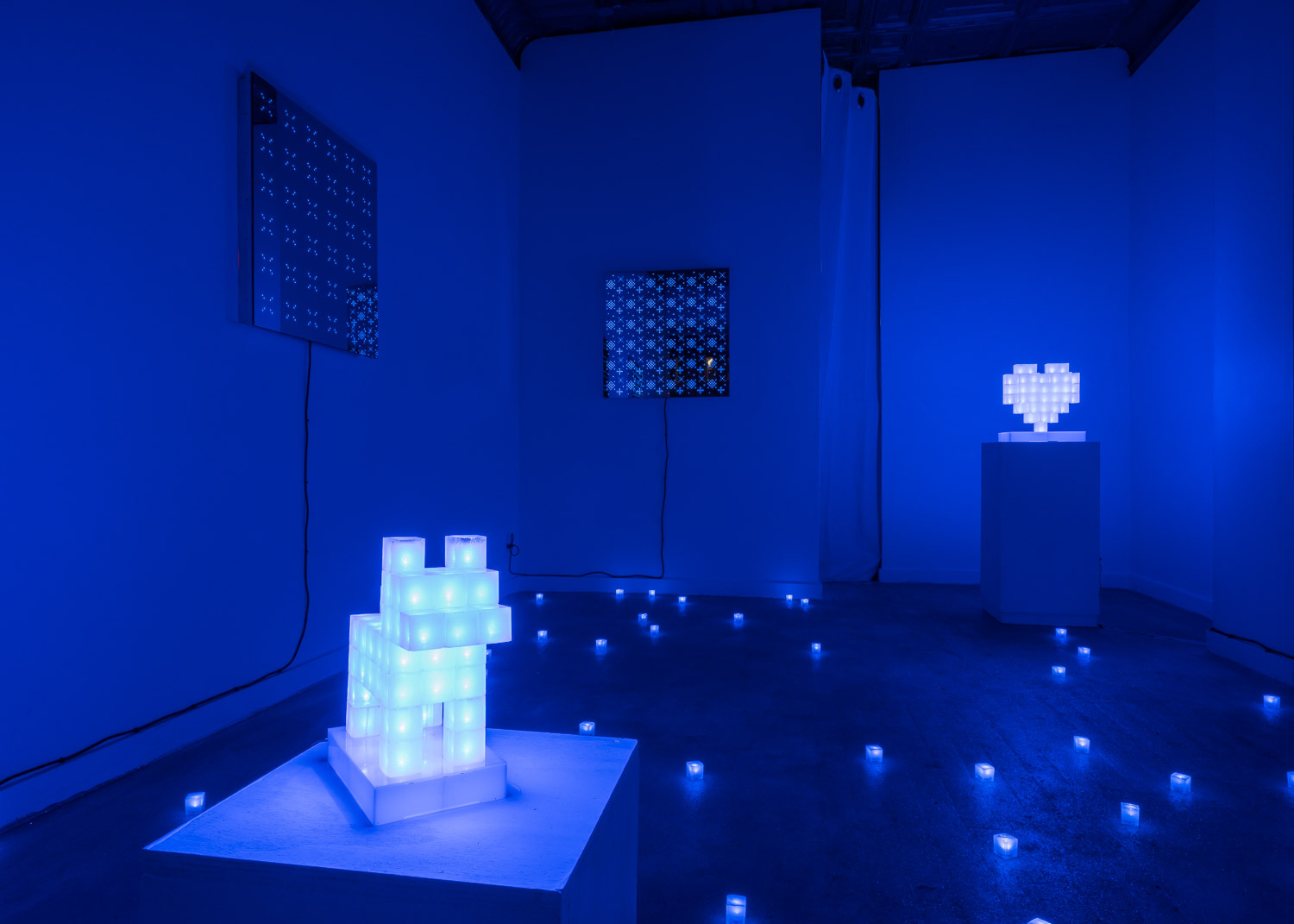
Shinji Murkami
Lateral Thinking with Withered Technology, 2017
Installation
Catinca Tabacaru, NY
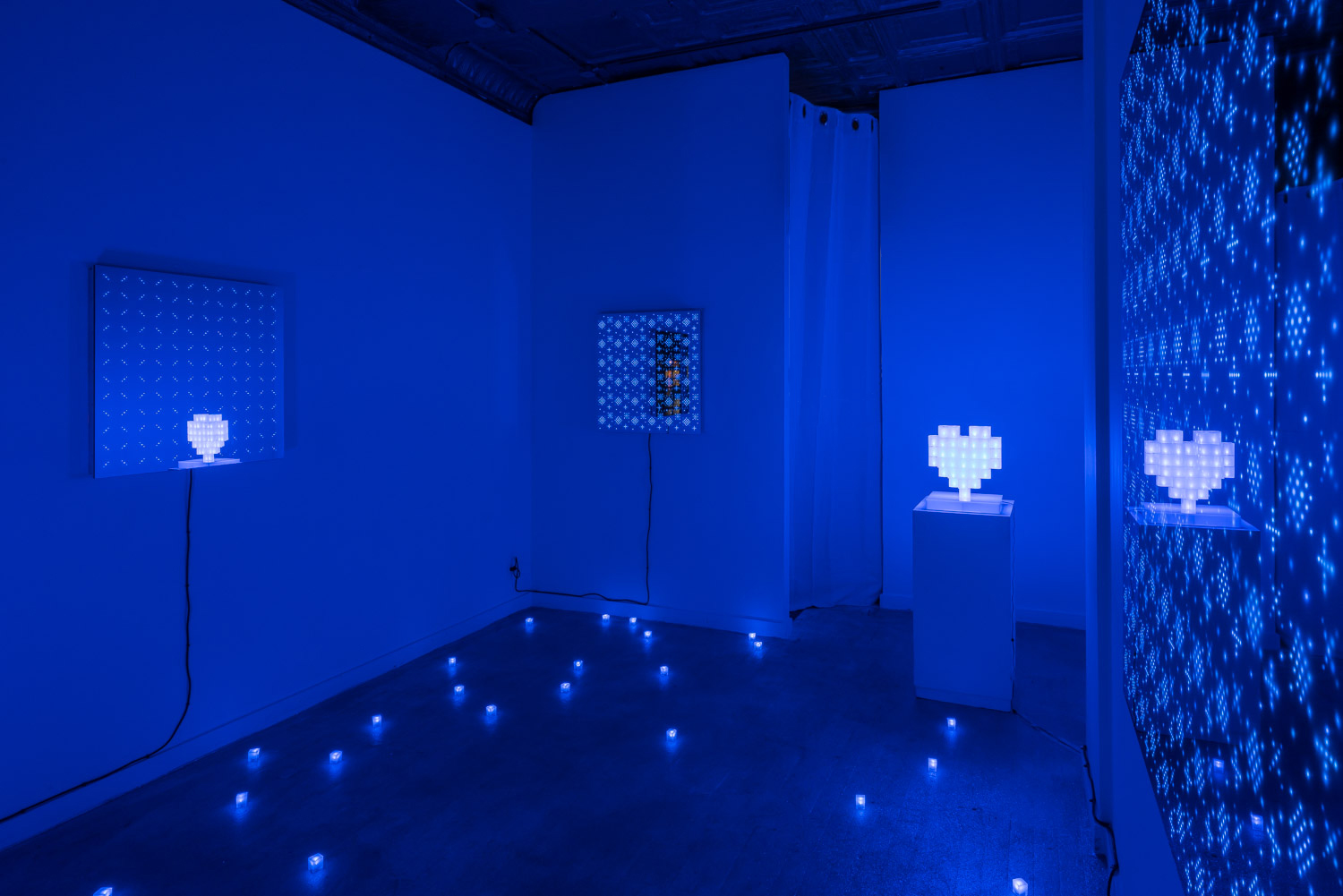
Shinji Murkami
Lateral Thinking with Withered Technology, 2017
Installation
Catinca Tabacaru, NY
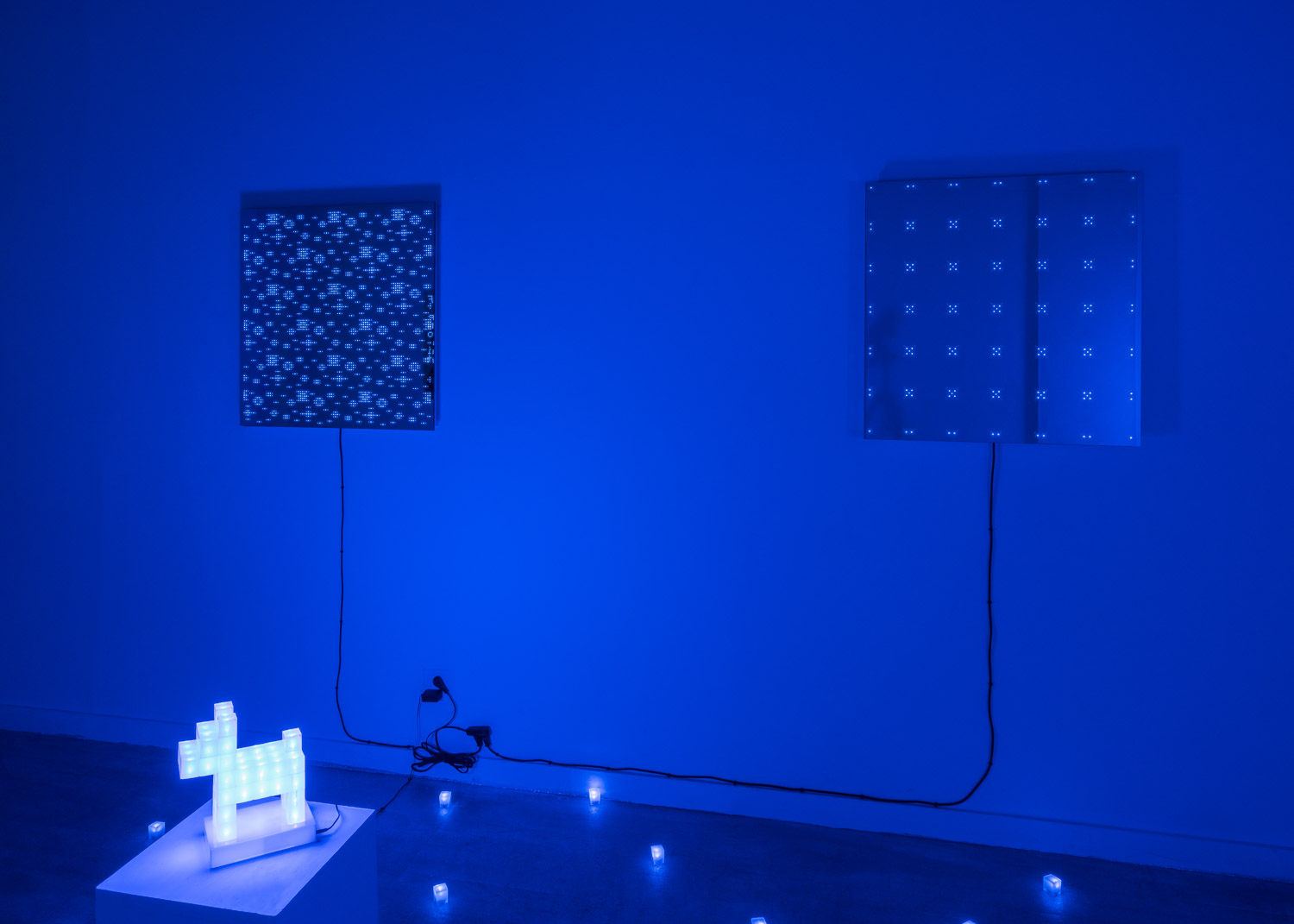
Shinji Murkami
Lateral Thinking with Withered Technology, 2017
Installation
Catinca Tabacaru, NY
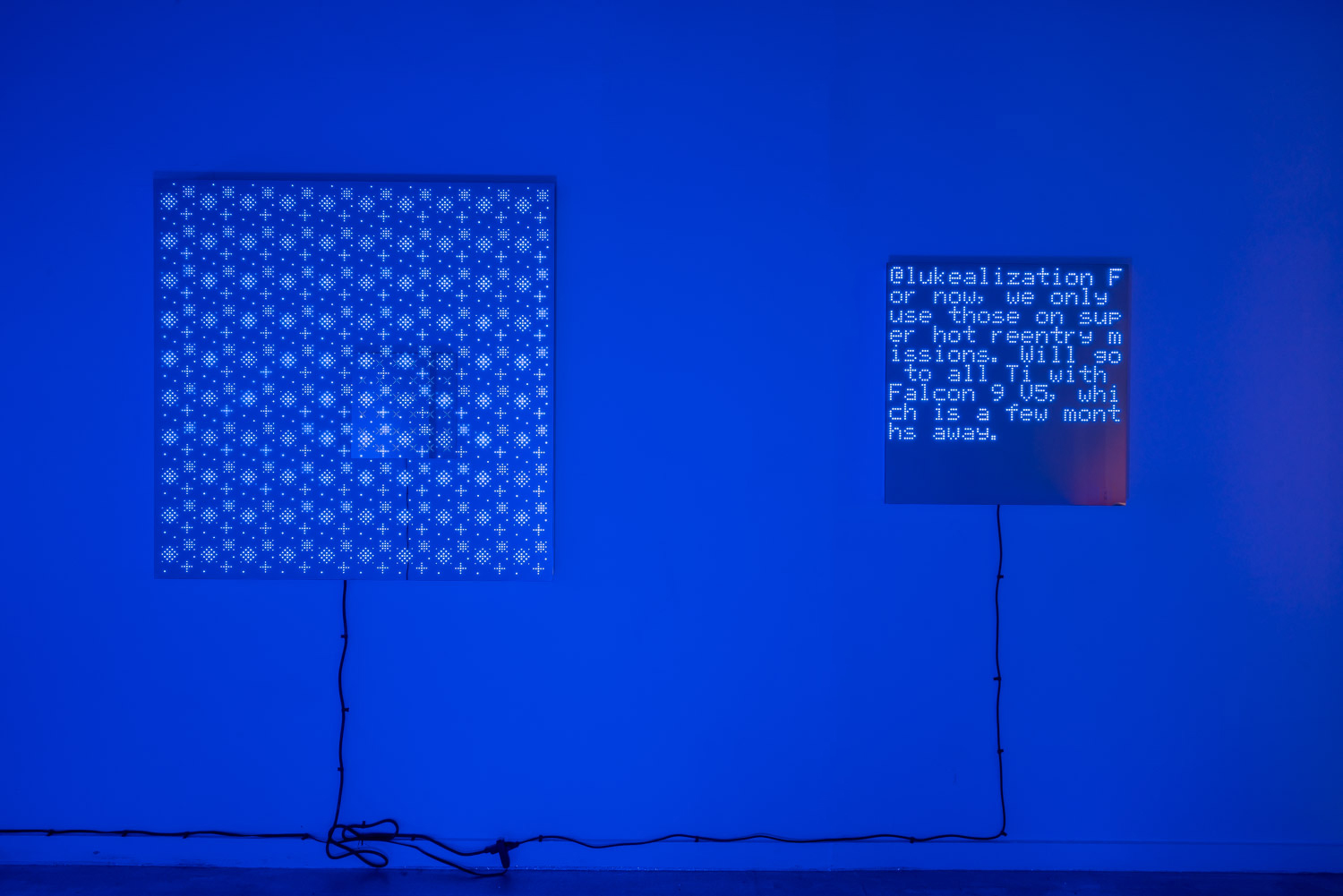
Shinji Murkami
Lateral Thinking with Withered Technology, 2017
Installation
Catinca Tabacaru, NY
New York, NY, December 14, 2017: Shinji Murakami’s new body of work moves from the exploration of the pixel as a 2D or 3D part of a whole in painting and sculpture, to its position as a point of LED light within a composition of pixels arranged within a limited grid. In line with his life-long interest in 1980s video games, Murakami titles his second solo show at Catinca Tabacaru Gallery, Lateral Thinking with Withered Technology, a reference to the philosophy of Gunpei Yokoi, the creator of the Nintendo Game Boy.
“Withered technology,” in this context, refers to a mature technology which is cheap and well understood. “Lateral thinking” refers to finding radical new ways of using such technology. While the 8-bit technology used in early video games is now a relic of the past, its sublimation into contemporary art proves seductive and beautiful in Murakami’s hands.
The works in Lateral Thinking with Withered Technology make use of LEDs in a variety of styles and critically engage how the digital world influences many aspects of contemporary culture. In sculpture, the light is built into cubes of clear resin, each serving as an individual pixel. Instead of color emission resulting from light reflection, here, the sculptures emit light themselves, producing a different experience for the retina. Similarly, two-way mirrors bring viewers into the flat works walls as a matrix of pixels march before our eyes. There is a sense of something simultaneously primitive and futuristic floating across a minimalistic space map composed of binary 1’s and 0’s – digital pixels emerging from the screen to inhabit the real world, a nod to the Augmented Reality (AR) movement propelling the future upon us.
The entire gallery feels like an AR scenario. Littered with several hundred LED cubes, the lights create a space completely removed from the burgeoning Lower East Side of Manhattan. The 1-inch sparkling resin cubes have built-in batteries, unleashed from the constraints of electric power. For Murakami, who began as a scrappy urban artist on the streets of Tokyo in 2002, the cubes act as a new style of street art which the artist has been developing since his arrival in New York City in 2009. Beginning to experiment with light in 2012, he used luminescent paint on cube pieces and placed them in the streets, but found them not bright enough. In 2013 he gathered the chemical liquid in Glow Sticks and tried drawing with it, but ran into a myriad of practical problems as the light source would only last a few hours. It was two years later that he started experimenting with a variety of light-emitting diode lighting (LED), preferring the technology for its customizable qualities and sustainability.
One LED flat work simultaneously addresses our contemporary obsession with social media and the future of technology. Updating on its own, it displays Elon Musk’s Twitter feed in real-time. The work was born out of a jealousy towards wordsmiths like Christopher Wool and Jenny Holzer, whose native English tongues result in masterful humor; and Murakami longed to use wit in his own work. Here, Murakami has found his own way to use words by borrowing from a man whose understanding of the future of mankind is best defined by his desire to reach Mars.
In conjunction with the opening of the show, Murakami unveils Le Coeur (The Standard), 2017, a large-scale installation on Le Bain’s rooftop at The Standard, High Line.